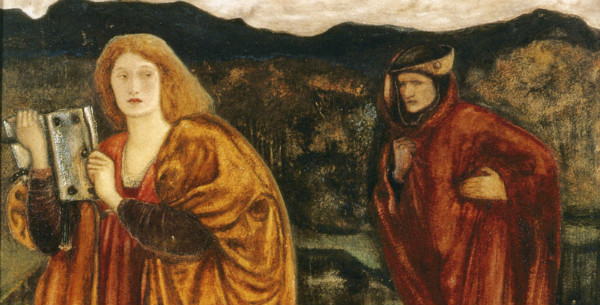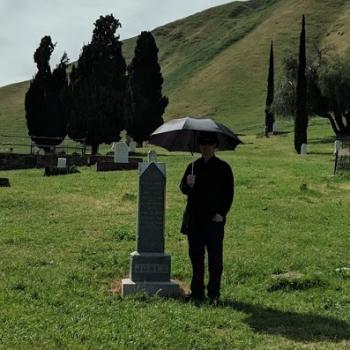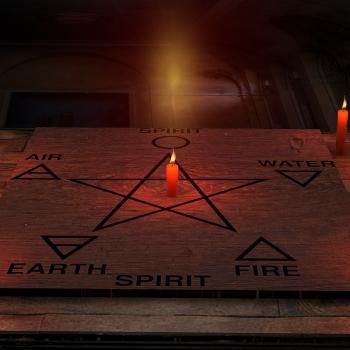I recently got back in touch with my meditation and healing teacher. Way back in the good old days of the mid-90s, I spent two years as a hardcore student of his. I’d already been training for most of a decade, but his teachings built a spiritual foundation under everything I had learned. It really saved my bacon.
Last week we were chatting online for the first time in a while, and he told me a funny story. Back in early 2016 when I had at least a foot in the next world, he thought I had died because I appeared to him. I suppose that’s a little unnerving, but it got me thinking about the depth of the relationship between teacher and student.

“Can you teach me to be a powerful magician?”
“The ‘power’ that you are grasping is not power.
“The ‘me‘ that reaches has no hands.
“Magic is who you are, not what you do.”
“You’re not going to teach me?”
“Fine. Sit here. Like this. Let’s begin.”
Being a Student
Studying magic isn’t like learning anything else. And, truth be told, there’s no good way to begin. What matters is that you try to take that step. It’s an impossible turn into an invisible world, though it probably doesn’t seem that way at the time.
With nothing but the intuition that there must be something more, we strike out into a new land of untold wonders and hidden dangers. Stumbling into the spirit world is like moving to a new country with only books as guidance – and the books are usually written like they come from the tourist bureau.
One of the steps people take is finding a teacher. It’s one of the most important decisions you’ll ever make with way too little data and only the roughest idea what you need.
ProTip: Never make finding a teacher your very first step. The first step is to get in touch with your own intuition. Learn to read tarot, or to meditate, or to reach out to your spirit guide. Without that, you won’t be able to tell the teacher you need from the teacher that needs you.
Being a Teacher
The hardest lesson for a teacher to learn is that it’s not about us and it’s not even about what we’re teaching. Students come and go for their own reasons.
Some years ago, I had one student for heart-centered-meditation who, after months and months of intensive work, became clear about what his path in life was. Further, he had fallen in love for the first time. There was an awkward period of about a month where he kept training, but his spirit wasn’t in it. Simply, he had finished what he had come to accomplish.

Understanding that what we teach is never going to be used the way we envision it is probably a good lesson. My teacher could never have envisioned the ends to which I would turn what I learned. But he is a good teacher, and when I explained what I wanted to accomplish his only words were, “good luck.”
ProTip: As a teacher, it’s always our job to be the adult in the room. That doesn’t mean always having all the answers. But it might mean offering a safe shoulder to cry on, giving a gentle reminder that we’re people too, or recommending further help when we’re out of our depth.
Relationships Matter
In the realm of the spirit, the teacher-student relationship must be treated as sacred. That doesn’t mean it’s awesome and wonderful all the time. Looking back, I know for certain that I caused my teacher headaches. But there is an obligation beyond the passing of knowledge. To get cliché, it’s a debt of honor, and it goes all the way to the core of things.
I am lucky to have found a good teacher. In a moment of peril, twenty years on, I could turn to him. And despite the miles and the years between us, he was there. As the story I opened with illustrates, these deep and meaningful spiritual connections are real.
We can’t afford pretend they are everyday interactions. Maybe that sounds like a plea for students to treat their teachers better (and please do!), but it’s really a reminder to us teachers, to treat our obligations with the depth of seriousness they deserve.















